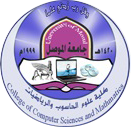Links that contribute to the development of teaching and learning processes
Educational Links Sites
Coursera: is a for-profit online education company that offers Massive Open Courses (MOOCs) created by Stanford University instructors. Coursera works with global universities to offer their courses through Coursera’s learning management interface. As of October 2013, its courses had 5 million students worldwide. Below is the link to the free courses:
https://www.coursera.org/courses?query=free
Khan Academy: is a non-profit educational organization founded by Salman Khan in 2008. Its stated goal is to “provide high-quality education to anyone, anywhere.” Its website offers more than 3,600 short lectures via video clips stored on YouTube to teach pure science. Below is the link to the academy:
https://ar.khanacademy.org
Udemy: is an online educational platform for adults. Udemy platform is interested in many contents including programming, translation, drawing, profit from the Internet or creativity in general. Udemy platform provides a set of tools that help users create training courses in order to earn money in many ways. Currently; Udemy has focused its attention on university students, as it has worked to adopt courses related to improving the student’s skills and what he must master. There are some courses on the platform that ultimately enable the viewer to obtain a technical certificate of respect in some developed countries. As of 2019; There are more than 100,000 free and paid courses on the site.
https://www.udemy.com
MIT OpenCourseWare: It is an initiative by the Massachusetts Institute of Technology to publish all educational materials from undergraduate and graduate courses online, and they are available for free and openly to anyone, anywhere. The project was announced on April 4, 2001, and uses a Creative Commons license. The program was originally funded by the William and Flora Hewlett Foundation, the Andrew W. Mellon Foundation, and the Massachusetts Institute of Technology. The program is supported by MIT, institutional subscriptions, major gifts, and donations from visitors to the site. The initiative has inspired a number of other institutions to make their course materials available as open educational resources.
https://ocw.mit.edu
w3schools: An online educational site for learning web development languages. The content includes lessons and references related to HTML, CSS, JavaScript, PHP, SQL, Bootstrap, and jQuery. The site receives over 60 million unique visitors per month.
http://www.w3schools.com
Codecademy: An interactive website that provides a platform for learning programming languages such as Python, JavaScript, and Ruby, as well as markup languages such as HTML and CSS. By September 2011, the site had 550,000 users who had completed more than 6 million training sessions. The site received positive reviews and comments from many blogs and websites, such as the New York Times and TechCrunch. To motivate users to learn, the site provides logos upon completion of each set of exercises. Each user also receives points for what he has accomplished, and each user’s points are shown to the rest of the users. The site allows any user to write and publish lessons using a dedicated tool for creating lessons.
https://www.codecademy.com/learn
GitHub: A subsidiary of Microsoft that provides hosting for software development and version control using Git. The company provides distributed version control and source code management (SCM) functionality for Git, as well as its own features. The system provides access control and many collaboration features such as bug tracking, feature requests, task management, continuous installation, and wikis for each GitHub project. Headquartered in California, it has been a subsidiary of Microsoft since 2018.
https://github.com

